Resources
When teaching diversity courses that discuss sensitive issues, such as racial, gender, sexuality, religious, and ethnic discrimination, it is possible to encounter student resistance, which can subsequently prevent students from comprehending the content. While teaching an introductory course on African American history in a Black Studies Department at a predominantly white institution of higher education in Middle America, I experienced such resistance. This article discusses how I initially taught the course, evaluated and then restructured my active learning approach to include reflective learning and Black Studies techniques to address that resistance.
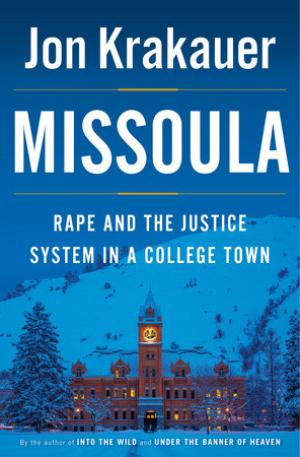
Click Here for Book Review Abstract: Missoula, Montana, is a typical college town, with a highly regarded state university, bucolic surroundings, a lively social scene, and an excellent football team - the Grizzlies - with a rabid fan base.   The Department of Justice investigated 350 sexual assaults reported to the Missoula police between January 2008 and May 2012. Few of these assaults were properly handled by either the university or local authorities. In this, Missoula is also typical.   A DOJ report released in December of 2014 estimates 110,000 women between the ages of eighteen and twenty-four are raped each year. Krakauer’s devastating narrative of what happened in Missoula makes clear why rape is so prevalent on American campuses, and why rape victims are so reluctant to report assault.   Acquaintance rape is a crime like no other. Unlike burglary or embezzlement or any other felony, the victim often comes under more suspicion than the alleged perpetrator. This is especially true if the victim is sexually active; if she had been drinking prior to the assault — and if the man she accuses plays on a popular sports team. The vanishingly small but highly publicized incidents of false accusations are often used to dismiss her claims in the press. If the case goes to trial, the woman’s entire personal life becomes fair game for defense attorneys.   This brutal reality goes a long way towards explaining why acquaintance rape is the most underreported crime in America. In addition to physical trauma, its victims often suffer devastating psychological damage that leads to feelings of shame, emotional paralysis and stigmatization. PTSD rates for rape victims are estimated to be 50%, higher than soldiers returning from war.   In Missoula, Krakauer chronicles the searing experiences of several women in Missoula — the nights when they were raped; their fear and self-doubt in the aftermath; the way they were treated by the police, prosecutors, defense attorneys; the public vilification and private anguish; their bravery in pushing forward and what it cost them.   Some of them went to the police. Some declined to go to the police, or to press charges, but sought redress from the university, which has its own, non-criminal judicial process when a student is accused of rape. In two cases the police agreed to press charges and the district attorney agreed to prosecute. One case led to a conviction; one to an acquittal. Those women courageous enough to press charges or to speak publicly about their experiences were attacked in the media, on Grizzly football fan sites, and/or to their faces. The university expelled three of the accused rapists, but one was reinstated by state officials in a secret proceeding. One district attorney testified for an alleged rapist at his university hearing. She later left the prosecutor’s office and successfully defended the Grizzlies’ star quarterback in his rape trial. The horror of being raped, in each woman’s case, was magnified by the mechanics of the justice system and the reaction of the community.   Krakauer’s dispassionate, carefully documented account of what these women endured cuts through the abstract ideological debate about campus rape. College-age women are not raped because they are promiscuous, or drunk, or send mixed signals, or feel guilty about casual sex, or seek attention. They are the victims of a terrible crime and deserving of compassion from society and fairness from a justice system that is clearly broken. (From the Publisher)
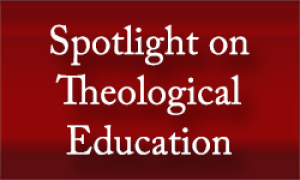
Journal Issue. Full text is available online.
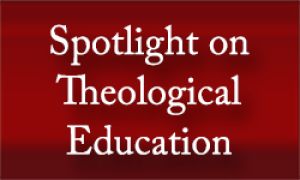
Journal Issue. Full text is available online.
A method for fostering constructive dialogue where conflicts are driven by differences in identity, beliefs, and values. Workshops, resources, blog, client services.
A clearinghouse for information, analysis, and resources related to state sanctioned violence in the United States

Racial Battle Fatigue is described as the physical and psychological toll taken due to constant and unceasing discrimination, microagressions, and stereotype threat. The literature notes that individuals who work in environments with chronic exposure to discrimination and microaggressions are more likely to suffer from forms of generalized anxiety manifested by both physical and emotional syptoms. This edited volume looks at RBF from the perspectives of graduate students, middle level academics, and chief diversity officers at major institutions of learning. RBF takes up William A. Smith’s idea and extends it as a means of understanding how the “academy” or higher education operates. Through microagressions, stereotype threat, underfunding and defunding of initiatives/offices, expansive commitments to diversity related strategic plans with restrictive power and action, and departmental climates of exclusivity and inequity; diversity workers (faculty, staff, and administration of color along with white allies in like positions) find themselves in a badlands where identity difference is used to promote institutional values while at the same time creating unimaginable work spaces for these workers. (From the Publisher)
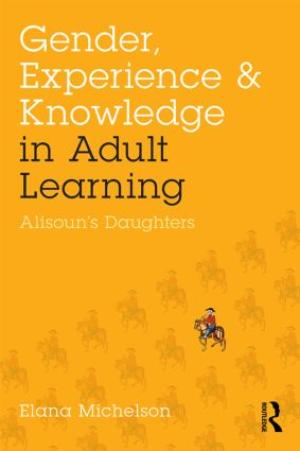
Click Here for Book Review Abstract: In this wide-ranging book, Elana Michelson invites us to revisit basic understandings of the 'experiential learner'. How does experience come to be seen as the basis of knowledge? How do gender, class, and race enter into the ways in which knowledge is valued? What political and cultural belief systems underlie such practices as the assessment of prior learning and the writing of life narratives? Drawing on a range of disciplines, from feminist theory and the politics of knowledge to literary criticism, Michelson argues that particular understandings of `experiential learning’ have been central to modern Western cultures and the power relationships that underlie them. Presented in four parts, this challenging and lively book asks educators of adults to think in new ways about their assumptions, theories, and practices: - Part I provides readers with a short history of the notion of experiential learning. - Part II brings the insights and concerns of feminist theory to bear on mainstream theories of experiential learning. - Part III examines the assessment of prior experiential learning for academic credit and/or professional credentials. - Part IV addresses a second pedagogical practice that is ubiquitous in adult learning, namely, the assigning of life narratives. Gender, Experience, and Knowledge in Adult Learning will be of value to scholars and graduate students exploring adult and experiential learning, as well as academics wishing to introduce students to a broad range of feminist, critical-race, materialist and postmodernist thinking in the field. (From the Publisher)
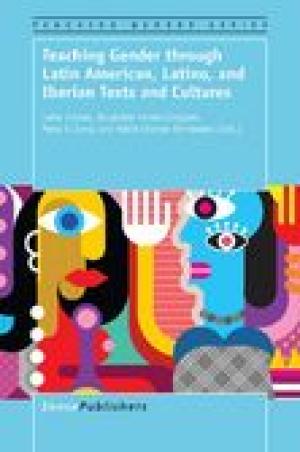
Teaching Gender through Latin American, Latino, and Iberian Texts and Cultures provides a dynamic exploration of the subject of teaching gender and feminism through the fundamental corpus encompassing Latin American, Iberian and Latino authors and cultures from the Middle Ages to the 21st century. The four editors have created a collaborative forum for both experienced and new voices to share multiple theoretical and practical approaches to the topic. The volume is the first to bring so many areas of study and perspectives together and will serve as a tool for reassessing what it means to teach gender in our fields while providing theoretical and concrete examples of pedagogical strategies, case studies relating to in-class experiences, and suggestions for approaching gender issues that readers can experiment with in their own classrooms. The book will engage students and educators around the topic of gender within the fields of Latin American, Latino and Iberian studies, Gender and Women’s studies, Cultural Studies, English, Education, Comparative Literature, Ethnic studies and Language and Culture for Specific Purposes within Higher Education programs. “Teaching Gender through Latin American, Latino, and Iberian Texts and Cultures makes a compelling case for the central role of feminist inquiry in higher education today … Startlingly honest and deeply informed, the essays lead us through classroom experiences in a wide variety of institutional and disciplinary settings. Read together, these essays articulate a vision for twenty-first century feminist pedagogies that embrace a rich diversity of theory, methodology, and modality.” – Lisa Vollendorf, Professor of Spanish and Dean of Humanities and the Arts, San José State University. Author of The Lives of Women: A New History of Inquisitional Spain “What is it like to teach feminism and gender through Latin American, Iberian, and Latino texts? This rich collection of texts … provides a series of insightful and exhaustive answers to this question … An essential book for teachers of Latin American, Iberian and Latino/a texts, this volume will also spark new debates among scholars in Gender Studies.” – Mónica Szurmuk, Researcher at the National Scientific and Technical Research Council of Argentina. Author of Mujeres en viaje and co-editor of the Cambridge History of Latin American Women’s Literature (From the Publisher)
A forum on race and teaching theology and religion, launched in the wake of the August 2014 shooting of Michael Brown and subsequent protests and police response in Ferguson, Missouri, but framed more broadly to encompass teaching for racial and social justice, dismantling the structures of white privilege in academia, and diversifying the faculty, the students, and the canon.